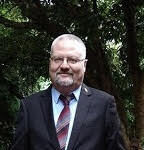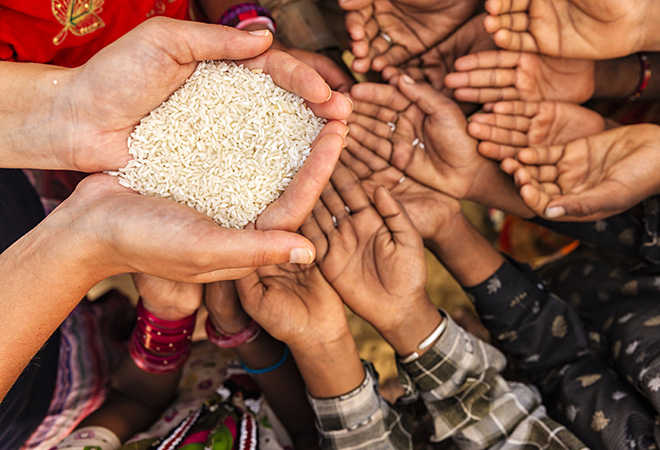(Reflections by Klaus Döring)

Klaus Döring
If I think about it, peace is first in my mind. But there is still another challenge. Worldwide population is expected to grow to nearly 10 billion by 2050 – but agricultural lands won’t be able to follow the same pace. The problem is clear: something has to change. The question is what.
Sustainable food for everyone! Food – besides water!
The world’s population continues to grow – but the Earth’s surface doesn’t. And already one in nine people around the world suffers from hunger. Although fertility levels worldwide are declining, life expectancy is increasing – and therefore, the global population keeps growing. The United Nations estimates that the world’s population is increasing by more than 80 million people every year.
Forecasts offer a nonstop rise: The global population is expected to reach 8.6 billion in 2030, 9.8 billion in 2050 and 11.2 billion by 2100. So allow me to ask: How can we feed all these billions without destroying the Earth?
Although it’s a dire picture, let’s face it: the situation is not as disastrous as it might seem. Food is not lacking – it is just poorly managed. I got the idea for this post after having watched an interview with Ralf Südhoff, head of the World Food Program of the United Nations in Berlin. He said: “Today, we would be able to feed many more people than we do”. “But we waste too much of the food we produce, and we lack efficient production – particularly in Africa”.
Forgotten are many rural areas. I agree with Südhoff who says that population growth is not the key cause of hunger, but rather a lack of efficiency in managing our resources. Indeed, farmers in rural areas of some African and Asian countries still lack the necessary means to maximize crop yields, misusing vast areas of land.
Imagine, the productivity of existing arable lands could be doubled, experts believe. And experts agree that productivity could be increased through very simple means. Allow me to quote again Ralf Südhoff: “Efficiency could be doubled or tripled in African countries by providing basic means such as training, credits and land rights”.
According to Valentin Thurn, director of the German documentary “10 Billion- Whats on your plate?”, farmers in rural areas are the most affected by hunger – and the ones most commonly left behind. He believes, and he is “deadly” correct, smallholders should get integrated into the modernization processes – until now, only limited to big industrialized farms.
While it won’t necessarily be easy to feed 10 billion people sustainably, it is possible, experts believe.
“We are producing at such a pace that the natural cycle cannot recover fast enough,” Klingholz said. “And this is mainly rich countries’ fault.” Global agriculture currently produces some 4,000 calories per capita per day – the double of what each person needs. Sad to say but it’s also true: we are already producing enough for 9 to 12 billion people – but we discard a third of the harvest worldwide!
Farmers are adapting to climate change. Yes, there is climate change! The World Food Program estimates that under climate change scenarios, the risk of malnutrition for children will increase 20 percent by 2050 – meaning 24 million more children could soon suffer from it. Industrialized countries are therefore even more responsible for mitigating the effects of climate change. Südhoff believes this and so do I and many others on this globe.

No comments:
Post a Comment